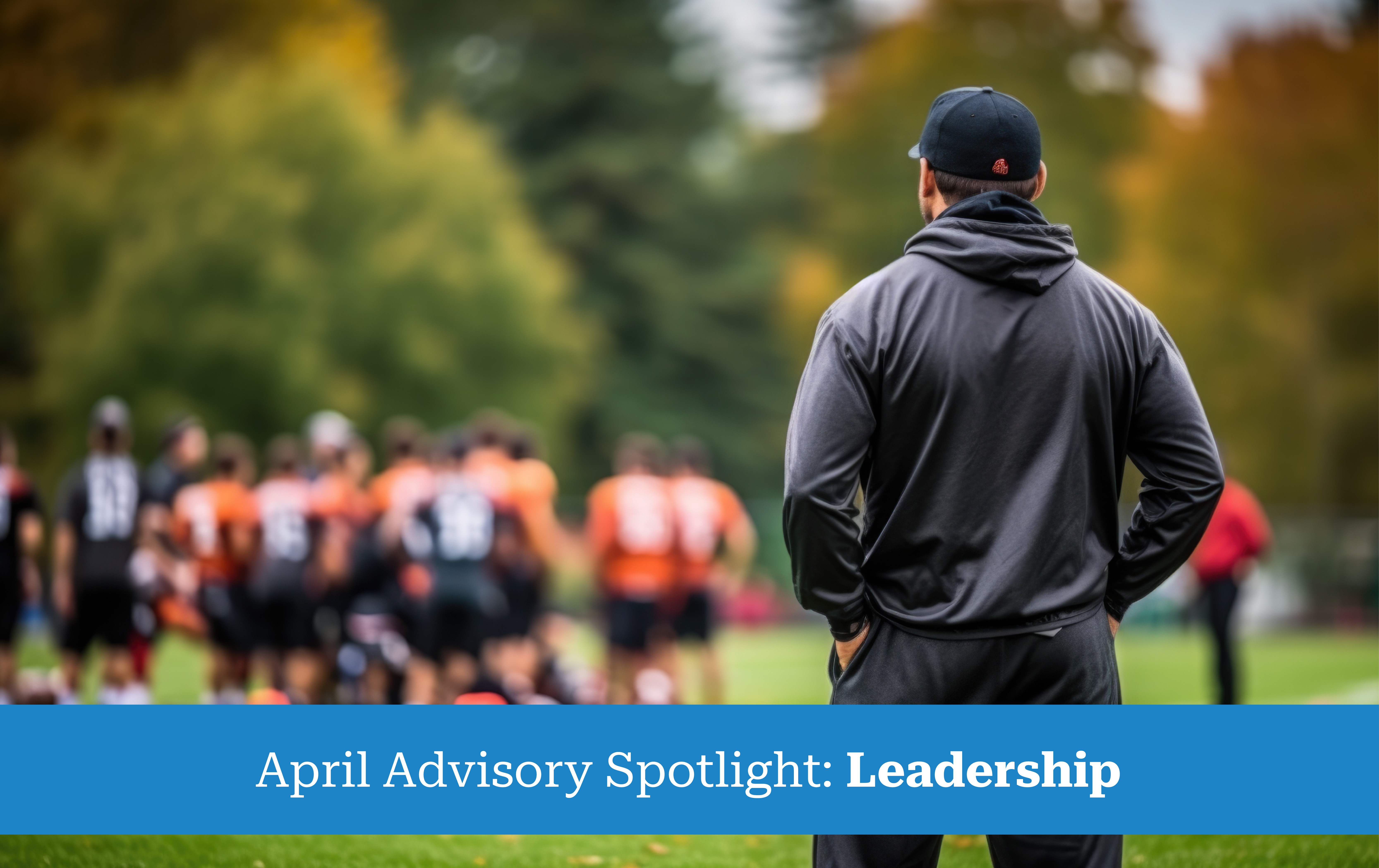
Today I want to share some of the biggest leadership lessons I’ve learned from the world of sports that you can bring to your teams.
One of the reasons that people love professional sports so much is that they are such a perfect window into the rest of our lives. All the pressures and challenges of everyday life are right there but ramped up to a new level of intensity.
In every game, there is a winner and a loser. At the end of the season, there is one champion. Everyone’s win-loss record is right there for the world to see. We always know what is working and what isn’t because we can look at the scoreboard and the standings; we know who is playing well, who isn’t, and who needs to make a change.
It’s a lot like business – and I feel qualified to make that comparison because I’ve been part of both worlds. Dollars and cents are a pretty clear indicator of what is working, almost as good as the win-loss record. And the connections run deeper, because so many of the lessons I learned from sports, and from watching great teams on the field, have carried over into recognizing and building great teams in business.
Leadership Lessons from Sports
Get Buy-In From Your Team
 We’ve been fortunate in recent years to get to watch two of the greatest football coaches of all time, Bill Belichick in the NFL and Nick Saban at the college level. It becomes less of a coincidence when you realize they coached together for a few years in Cleveland in the 1990s, and have very similar approaches. They found something that works!
We’ve been fortunate in recent years to get to watch two of the greatest football coaches of all time, Bill Belichick in the NFL and Nick Saban at the college level. It becomes less of a coincidence when you realize they coached together for a few years in Cleveland in the 1990s, and have very similar approaches. They found something that works!
Both Belichick with the New England Patriots and Saban with the University of Alabama have mantras that they repeat constantly around their teams. For Belichick, it was, “Do your job.” For Saban, “Trust the process.” In practice (and at practice!) these two meant similar things. It boils down to getting every player on the roster, from the star player all the way to the last man on the bench, to buy into what the team is doing.
For a player to “do their job,” they need to understand their role and what is expected from them. Then they have to accept that role. Each player has to believe that if they – and each of their teammates – focus on performing their role, the team will win. That’s a leadership lesson.
If players “trust the process,” they are buying into the coach’s whole philosophy and approach. Saban doesn’t approach a game with the simple objective of “win the game.” Instead, he is approaching each play with an objective to “execute this play flawlessly.” If his players buy into that approach and work hard to win each play, one after another, and then the wins will follow naturally.
I think 6 Super Bowls and 7 national championships are proof of concept.
As a business leader, you need to get buy-in from your team members. They have to believe in the mission of what you’re doing and approach each day and each interaction with the same goal to help your business thrive.
Build a Culture of Caring
Another valuable team-building lesson you can learn is about your organization’s culture. You want to create a culture of caring. Pete Carroll is one of the best examples of a leader who does this. He won a Super Bowl as head coach of the Seattle Seahawks, along with multiple national championships at USC.
For him, the most important thing was not X’s and O’s or some complex strategy; it was all about people. He recently described his mission as “trying to help people find their best, one person at a time.” If you were on his team, Pete Carroll wanted to help you to be the most successful player and person you could be. He cared.
There’s a stereotype in sports of the disciplinarian head coach who just yells and screams at his players until they get it right. That kind of coach never worked for me, and that’s true of a lot of players. Somebody like Pete Carroll could get players to run through walls with positivity and love. I think that’s a better example for us to follow than all the yellers and screamers. That leadership lesson from sports is to encourage, not discourage.
Other teams and coaches have discovered the same thing. Tom Coughlin, the head coach of the New York Giants who won two Super Bowls against Belichick’s Patriots, was known as one of those tough disciplinarians. He was most famous for fining players who were less than 5 minutes early to meetings! But before playing against the Patriots, he did something he’d never done: he got the whole team together in the meeting room and told them he loved them. Love and trust and camaraderie are a powerful bond for a team.
That’s the culture we should strive for in our business, too. Lots of businesses say they’re “like a family,” but it’s only true for a much smaller number. Make sure your team members know they aren’t just interchangeable line items on a spreadsheet. They are people with hopes and fears. If you care about them and prove it with your actions, they’ll give you their best.
Pay Attention to the Details
One of the biggest lessons from sports I learned was from the best coach I ever played for, and one of the best friends of my life, was Bud Grant of the Minnesota Vikings. He taught me so much, and one of the best lessons was about how important it is to see the signs, paying attention to every detail.
We were at training camp, hosted at Mankato State University, and at the end of a long day of practice, Bud addressed the team. The university, he told us, was trying to grow grass in a spot that was between our dorms and the field. They were putting up a small sign that said, “Keep Off the Grass.” I was puzzled; a group of professional athletes, preparing for ferocious competition, and our key takeaway for the day was to keep off the grass?
Coach Grant summoned me to his room the next day when the rest of the team was walking over from the dorm to the field house. “Come on in here,” he said to me. “Do you see what I see?”
I saw players walking to practice.
“No,” he said. “Don’t you remember what I said last night? Look!” Out the window, he had a view on the little patch of grass he’d talked to us about. What he saw, and what he wanted me to see, was that most of the players did what he’d asked, and walked around that area. But a few trampled right over the sign.
The players walking over the grass weren’t trying to be disrespectful, but they weren’t paying attention or didn’t think it mattered. “Those players will make a really bad mistake somewhere down the line that will cost us a game,” he said. And over the course of the year, he was proven right! The best players, the players we could trust to help us win games, paid attention to the details – even something seemingly unimportant like staying off a small patch of grass. The people who don’t pay attention to the small things are likely to make a mistake on the big things, too.
It’s a leadership lesson from sports I’ve never forgotten. You have to see the signs, and you have to pay attention to every detail. Surround yourself with other people who care about the details, too. Lead by example, and set high standards for your team. If you’ve done a good job of building and guiding your team, they’ll rise to the occasion.
255 Views














